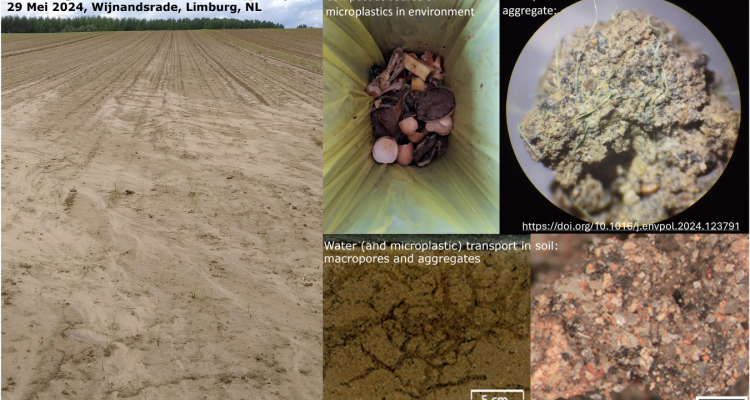
Project
How microplastics affect soil hydrology and, thereby, MP distribution and transport in and over soils (MASTER)
PhD candidates
About this porject:
Plastic pollution is increasingly recognised as an enormous environmental and societal problem. Microplastic (MP; < 5 mm) input to soils is estimated to be 40 times larger than input to surface waters. MPs accumulate in agricultural soils due to plastic mulching and application of polluted organic amendments such as sewage sludge and compost. Evidence on how MPs affect soil hydrological and physical properties is limited and contradictory, while this can greatly affect the soil structure, soil water balance, infiltration and water holding capacity, in turn affecting runoff generation and erosion on sloping land. While soil erosion is the most common land degradation problem worldwide, how MPs are transported with runoff and erosion is virtually unknown.
Given these clear knowledge gaps the MASTER project aims to unravel and quantify how MPs affect soil structure formation and soil hydrology and how this, in turn, affects MP transport with runoff and erosion. To reach these goals, one PhD student will focus on unravelling MP effects on soil hydrology using multiple laboratory experiments and modelling. The second PhD student will focus on quantifying MP transport with runoff and erosion using rainfall simulation experiments, field monitoring and modelling. The PhDs will be hosted in the Soil Physics and Land Management (SLM) group of Wageningen University, which has leading expertise in soil hydro-physical research, soil erosion and mitigation as well as plastic pollution of (agricultural) soils.
The research outcomes will greatly contribute to our knowledge on MP effects on soil hydro-physics and the project will be one of the first to quantify transport of MPs with runoff and erosion. This will include the development of modelling tools to predict MP effects on the soil water balance and redistribution. These insights and tools can be used directly to better quantify the fate of plastics in the environment. In the long term, this leads to better assessment of the risks that plastics cause to the environment and human health and to develop policies to prevent and mitigate the growing plastic pollution problem that society faces.